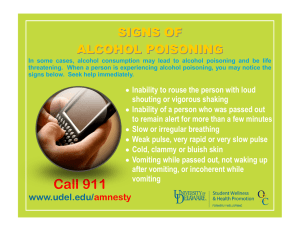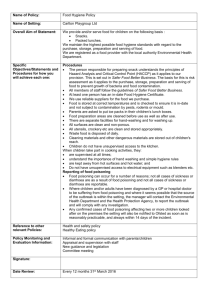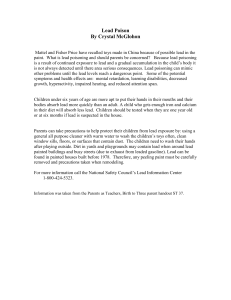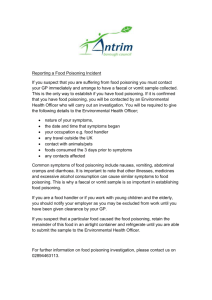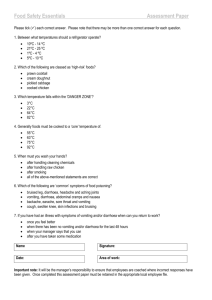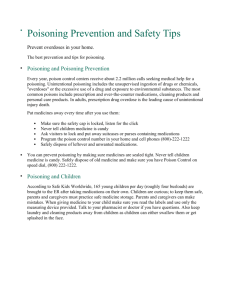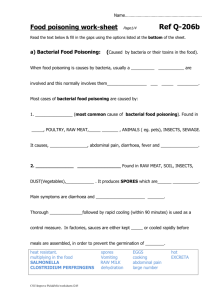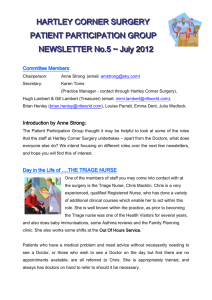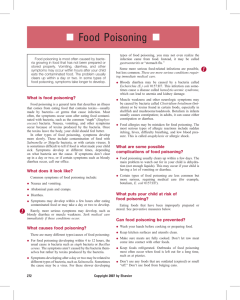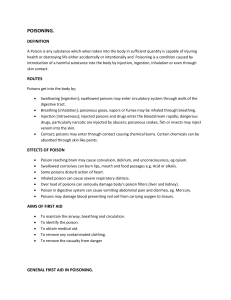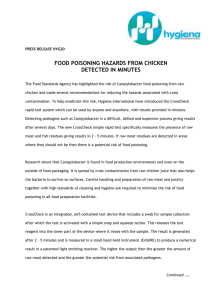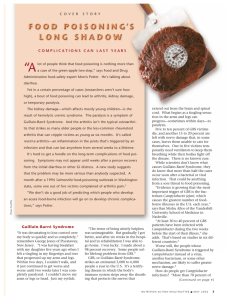here - Dolphin House Surgery
advertisement
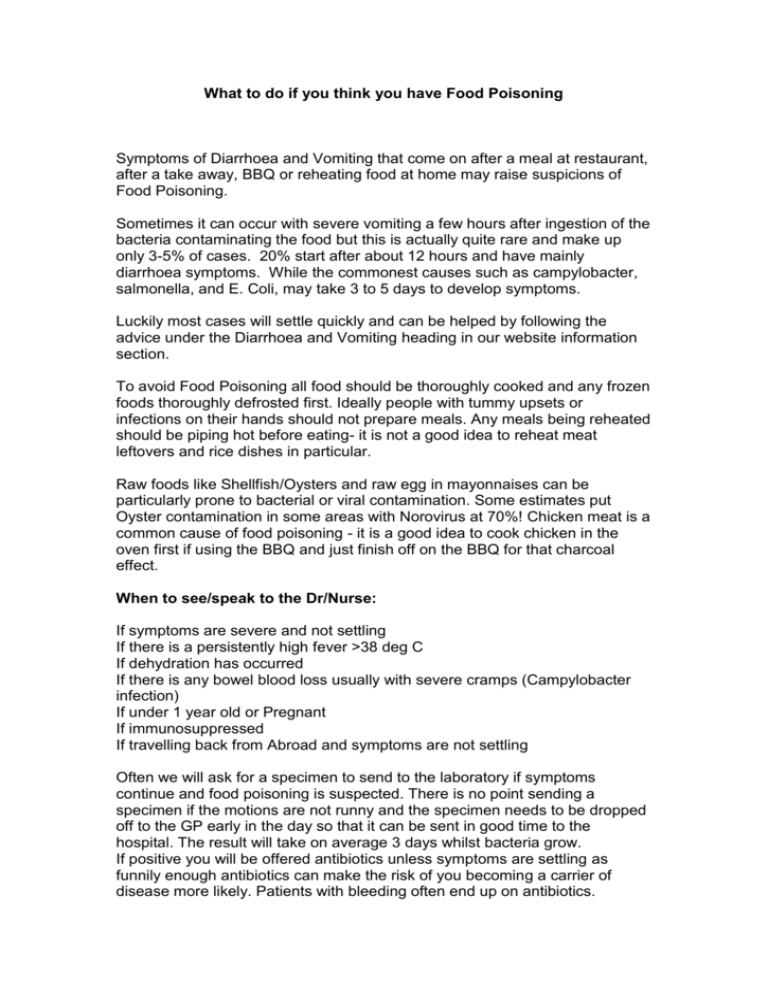
What to do if you think you have Food Poisoning Symptoms of Diarrhoea and Vomiting that come on after a meal at restaurant, after a take away, BBQ or reheating food at home may raise suspicions of Food Poisoning. Sometimes it can occur with severe vomiting a few hours after ingestion of the bacteria contaminating the food but this is actually quite rare and make up only 3-5% of cases. 20% start after about 12 hours and have mainly diarrhoea symptoms. While the commonest causes such as campylobacter, salmonella, and E. Coli, may take 3 to 5 days to develop symptoms. Luckily most cases will settle quickly and can be helped by following the advice under the Diarrhoea and Vomiting heading in our website information section. To avoid Food Poisoning all food should be thoroughly cooked and any frozen foods thoroughly defrosted first. Ideally people with tummy upsets or infections on their hands should not prepare meals. Any meals being reheated should be piping hot before eating- it is not a good idea to reheat meat leftovers and rice dishes in particular. Raw foods like Shellfish/Oysters and raw egg in mayonnaises can be particularly prone to bacterial or viral contamination. Some estimates put Oyster contamination in some areas with Norovirus at 70%! Chicken meat is a common cause of food poisoning - it is a good idea to cook chicken in the oven first if using the BBQ and just finish off on the BBQ for that charcoal effect. When to see/speak to the Dr/Nurse: If symptoms are severe and not settling If there is a persistently high fever >38 deg C If dehydration has occurred If there is any bowel blood loss usually with severe cramps (Campylobacter infection) If under 1 year old or Pregnant If immunosuppressed If travelling back from Abroad and symptoms are not settling Often we will ask for a specimen to send to the laboratory if symptoms continue and food poisoning is suspected. There is no point sending a specimen if the motions are not runny and the specimen needs to be dropped off to the GP early in the day so that it can be sent in good time to the hospital. The result will take on average 3 days whilst bacteria grow. If positive you will be offered antibiotics unless symptoms are settling as funnily enough antibiotics can make the risk of you becoming a carrier of disease more likely. Patients with bleeding often end up on antibiotics. We have a statutory duty to inform Public Health of any food poisoning so that they can contact you if necessary; or a particular restaurant if several cases occur in one area. We also have to give details of your occupation as well as basic patient details like your name and contact details.
